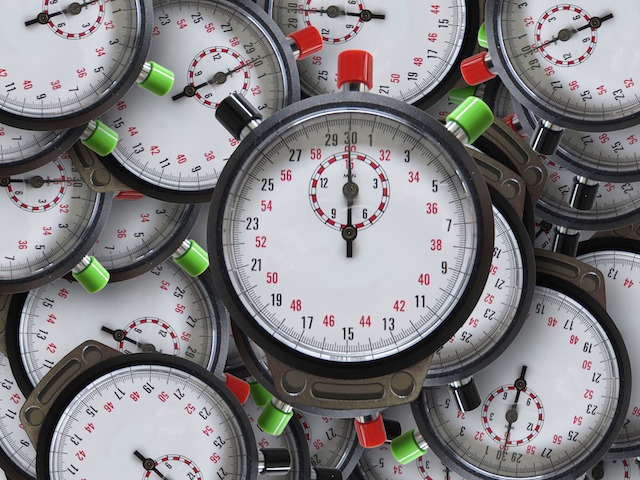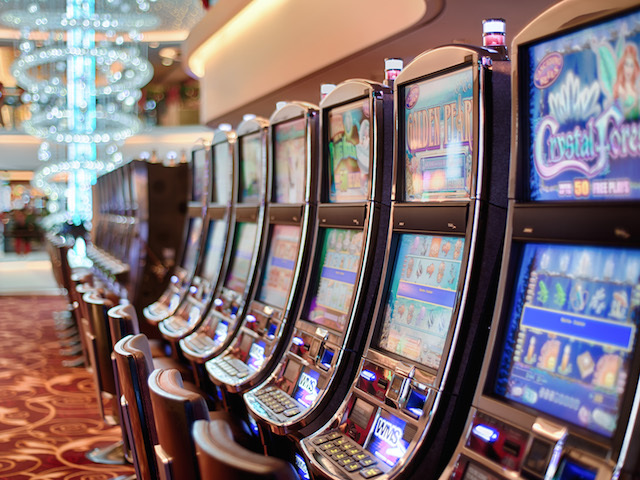Quick: you have an option to play a game with a 20% edge or one with a 2% edge? Which do you choose?
Naturally, the answer is the default AP-related one: it depends. In this case, factors may include table maximum and variance, but one factor that gets overlooked all too often is game speed.
With nearly any form of advantage play, game speed is an incredibly important variable. When you have an edge, you want as many repeated trials as possible; when you are playing against a house edge, you want as few trials as possible. More rounds per session also means a shorter time needed to get into the “long run.” Many APs understand this, but few put the effort into making this information as useful as possible, resulting in diminished EV, even if the overall edge and result is still positive.
It doesn’t matter if you’re counting cards, playing hole cards, grinding on a video poker machine, or playing a generous promotion—the faster you play, the more rounds you get in, the more your win rate increases, the faster you get to the “long run,” and the more you skew the ratio of getting the work in to time being observed by interested casino personnel.
The inverse is a situation where you are playing against a house edge—comp hustling or playing for cover, for example—and you want to give up the least amount of EV possible. You’ll need to be a little creative to make this happen without being completely obvious. This also applies to you, hole card players who leave the table the second a relief dealer shows up (or drop to 10% of your normal bet, as if no one can tell the difference).
There are myriad reasons why one would want to manipulate game speed, so instead, I’m going to focus on some ideas to actually do it. As I said before, get creative!
Speed it up:
- Whenever feasible, play heads-up, or displace civilians at a table with skilled players, even if their only purpose is to play fast.
- Keep conversation to a minimum. If you’re counting, you may want to keep this consistent during shuffles, too; talking only during shuffles can make your gameplay look even more methodical and focused.
- Manage buy-ins efficiently. Limit the number of times you need to buy-in or color up. Monitor the chips in the tray to know when a particular denomination is running low and strategically time your color-ups. Most casinos can change 25 bills without having to break the process into multiple steps—buying in for $3k typically takes more time than $2.5k.
- If you order drinks, have your money ready to hand to the server before they arrive.
- In select cases, consider giving up extra EV on unimportant hands in order to boost game speed on others. In one recent session, my partner played significantly sub-optimally in order to speed up gameplay, as the edge on my spot was tremendous and easily made up for any EV lost on his spot.
- This one goes without saying, but practice! Even one additional hand per hour adds up over the course of a year, and the EV gained can be significant.
Slow it down:
- Play at full tables, especially ones with a party vibe. The more time spent joking around and high-fiving, the less time spent playing.
- Engage both dealers and players in conversation. Either party may get annoyed if you’re wrapped up in conversation with the other; if they’re all talking, it’ll go much more smoothly.
- Manage buy-ins inefficiently! Buy in for small amounts, frequently. Color up or break down chips. Use a mixture of bill denominations in your transactions, preferably flipped in different directions. Have a partner come in and buy in for $100 in singles. My apologies to the dealers.
- Order drinks, but never have your cash ready, and be very indecisive when ordering. What kind of beer does the bar stock? Are those bottles, or draft? Always tip your server, but feel free to chuck in an extra dollar if you’ve been especially difficult. This won’t slow the game any more, but it’s the nice thing to do.
- Request a comp, if you’re playing rated. You may need a recommendation on where to eat. The dealer can always deal you out while you discuss this with the boss.
None of these are especially groundbreaking, but they should give you a starting point on game speed manipulation. The important thing is to be aware of just how significant game speed is relative to your results. You can still have a nice edge without putting much effort into this, but you’ll absolutely be leaving money on the table. Over the course of weeks, months, years, and careers, this money can add up to huge sums! Start thinking about game speed now and you’ll be happy you did later.
_____
Blake Phillips is a professional advantage player and contributing editor to AP Street. Contact him at bp@apstreet.com



